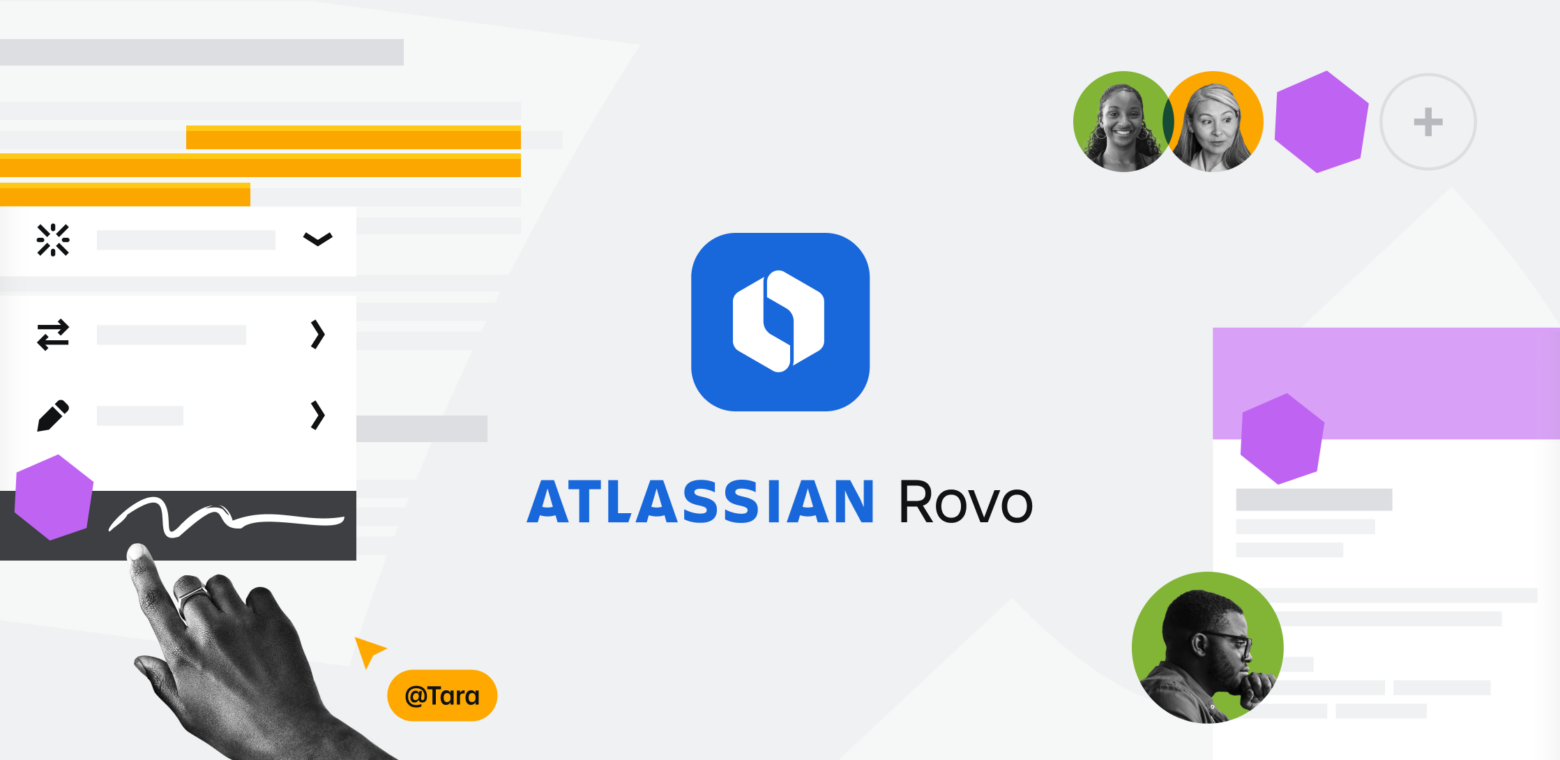 AI
AI
 AI
AI
 AI
AI
Collaboration and productivity software provider Atlassian Corp. today announced that its enterprise artificial intelligence solution Rovo will soon be available to all customers.
Atlassian announced Rovo in May alongside a closed beta for thousands of customers, which provides a knowledge discovery product for enterprise customers with advanced AI-powered search, chat and agent capabilities. Rovo is designed to help companies find information quickly across multiple products, learn quickly and act on their behalf like a “virtual teammate.”
“The future of teamwork is human and AI collaboration, so the faster we get, our human teams and organizations working with AI effectively and happily, the better everyone will be,” Jamil Valliani, Atlassian’s head of product for AI, told SiliconANGLE in an interview.
Rovo’s search capabilities reach deep across organizations and into company knowledge delivering a way to bring up information from across numerous enterprise tools. When Search first launched, it came with eight connectors, but today it now has about 50, including Atlassian’s own products and third-party services such as Slack, Gmail, OneDrive and Notion.
It is capable of pulling in highly relevant information to provide AI-generated knowledge cards based on user queries that include rich context such as source documents and team members involved.
A recent survey led by Atlassian revealed that knowledge workers spend 25% of their time searching for answers and that the quality and reach of those answers matter. More than half of those surveyed, 56%, said that sometimes the only way they got an answer was to ask someone else or schedule a meeting and 74% of executives said a lack of communication interfered with operations. Atlassian estimated that scattered and siloed information constituted almost 2.4 billion hours wasted searching for information each year within Fortune 500 companies.
New to Rovo, Atlassian has launched a Deep Research capability, similar to Google LLC’s Gemini AI feature of the same name, which allows a user to set the AI to task exploring intensive research about a specific topic. It will break down the topic into research steps, scour internal sources — or additionally search the web — to build a report that includes comprehensive but understandable findings for the user that can be exported to a Confluence page or Google Doc.
“When you see the report — because we at Atlassian have built many, many reports and have lots of best practices — you’ll see that it’s not just a bunch of text,” Valliani said. “It’s a well-formatted report that embeds tables, videos and those sorts of things from your content making it immediately useful.”
This opens up numerous opportunities for generating highly contextual reports while users are doing something else. They can ask the system to explore a topic and then go to lunch and have the Deep Research capability gather and organize the subject matter for them. It also provides a great way to prepare for a meeting where a user might need to delve into historical or scattered information across an organization that might be difficult to reach otherwise and view it in a format that can be easily absorbed.
Rovo Agents are essentially configurable AI “teammates” that can interact and complement work with employees but complete complex tasks by specializing in a particular area by automating tasks and may specialize in a particular knowledge area.
When Atlassian originally launched Agents, users were given the opportunity to choose capabilities out of the box and add skills based on the company’s ecosystem of partners. Now, the company has launched Rovo Studio, a no-code and low-code one-stop shop where nontechnical users can build their own custom agents by describing their roles and tailoring them from there.
They can build their agents from scratch or combine them with existing agents to expand their capabilities to match industry standards and needs. They can also combine them with existing automated workflows to make rigid rulesets more flexible and intelligent, which allows agents to make educated guesses where needed or mark them for follow-up by a human user should something happen.
For example, a Rovo agent could assist employees with setting up internal accounts such as their email or other systems. Some tasks are easily completed by connecting to existing tools through third-party partners that agentic AI can use to complete goals, but in some cases, the agent might need to generate a ticket in Jira or a similar system to get another employee to take it the last mile.
Rovo is rolling out to Jira, Confluence and Jira Service Management users as part of subscriptions in the coming months starting with Premium and Enterprise, Atlassian said, with Standard customers to follow.
Support our mission to keep content open and free by engaging with theCUBE community. Join theCUBE’s Alumni Trust Network, where technology leaders connect, share intelligence and create opportunities.
Founded by tech visionaries John Furrier and Dave Vellante, SiliconANGLE Media has built a dynamic ecosystem of industry-leading digital media brands that reach 15+ million elite tech professionals. Our new proprietary theCUBE AI Video Cloud is breaking ground in audience interaction, leveraging theCUBEai.com neural network to help technology companies make data-driven decisions and stay at the forefront of industry conversations.